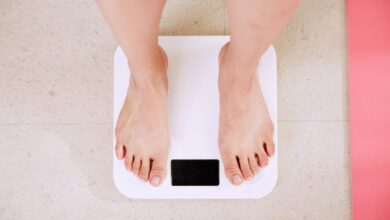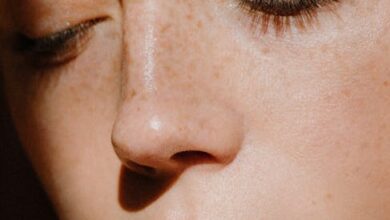Black Coffee For Weight Loss: Does It Really Work?

So, you’re curious about black coffee and weight loss? You’ve probably heard whispers about it being a magic potion, and you’re wondering if it’s too good to be true. As a nutrition and fitness enthusiast, I’m here to break down the science, the myths, and everything in between so you can make an informed decision.
Let’s get straight to the point: black coffee can be a helpful tool in your weight loss journey, but it’s not a standalone solution. Think of it as a supporting player, not the star of the show. Weight loss is complex, involving diet, exercise, sleep, and genetics. Black coffee just adds a little boost.

How Black Coffee Can Help With Weight Loss
Black coffee impacts your body in a few key ways that can contribute to weight loss. Let’s dive into the details.
Boosts Metabolism
One of the most significant benefits of black coffee is its ability to rev up your metabolism. Caffeine, the active ingredient in coffee, acts as a stimulant. It increases your heart rate and encourages your body to burn calories at a faster rate. This process, called thermogenesis, helps you burn more calories even when you’re resting.
Increases Energy Levels
Feeling sluggish when you’re trying to exercise and eat healthy? Coffee can help! Caffeine stimulates the central nervous system, making you feel more alert and energized. This can translate to more productive workouts, longer walks, or simply more energy to tackle your daily activities, all of which burn calories.
Suppresses Appetite
For some people, black coffee can act as a mild appetite suppressant. Studies have shown that it can affect hunger hormones, potentially reducing your overall calorie intake. This doesn’t work for everyone, and it’s not a long-term solution to overeating, but it can be a helpful tool in managing hunger pangs throughout the day.
Contains Few Calories
A cup of plain black coffee is incredibly low in calories – usually less than 5 calories per cup! This makes it a much better choice than sugary drinks like soda or sweetened coffee beverages loaded with cream and sugar. Substituting black coffee for these high-calorie options can significantly reduce your daily calorie intake.
May Improve Workout Performance
Remember that energy boost we talked about? Well, it can directly translate to better performance during exercise. Studies have shown that caffeine can improve endurance, reduce perceived exertion, and enhance muscle strength. This means you can push yourself harder and longer in your workouts, leading to more calories burned.
The Importance of “Black” Coffee
Notice that we’ve been emphasizing “black” coffee? That’s crucial. Adding sugar, cream, syrups, or flavored additives completely negates many of the weight loss benefits. These additions pack on extra calories and can lead to insulin spikes and crashes, which ultimately hinder your weight loss efforts. Stick to plain, unadulterated black coffee for the best results.
Potential Downsides and Considerations
While black coffee can be a helpful tool, it’s not without its drawbacks. It’s important to be aware of these potential downsides.
Can Cause Anxiety and Jitters
Caffeine can trigger anxiety and nervousness in some individuals, especially those who are sensitive to stimulants. It can also lead to jitters, rapid heartbeat, and difficulty concentrating. If you experience these symptoms, it’s best to reduce your coffee intake or avoid it altogether.
May Disrupt Sleep
Caffeine has a long half-life, meaning it stays in your system for several hours. Consuming coffee too late in the day can interfere with your sleep, leading to insomnia or poor sleep quality. Aim to cut off coffee consumption at least 6-8 hours before bedtime.
Can Be Addictive
Caffeine is a stimulant and can be addictive. Regular coffee consumption can lead to dependence, meaning you may experience withdrawal symptoms like headaches, fatigue, and irritability if you suddenly stop drinking it. It’s best to consume coffee in moderation to avoid dependence.
May Cause Digestive Issues
Coffee can stimulate bowel movements, which can be beneficial for some, but problematic for others. It can also irritate the stomach lining, leading to heartburn, acid reflux, or other digestive issues. If you experience these problems, consider reducing your coffee intake or switching to a lower-acid variety.
Not a Substitute for a Healthy Lifestyle
It’s important to reiterate that black coffee is not a magic bullet for weight loss. It’s just one piece of the puzzle. To achieve sustainable weight loss, you need to focus on a balanced diet, regular exercise, adequate sleep, and stress management. Black coffee can be a helpful addition to these efforts, but it shouldn’t be relied upon as the sole solution.
How Much Black Coffee Should You Drink?
Moderation is key. Most health experts recommend limiting your caffeine intake to around 400 milligrams per day, which is equivalent to about 4 cups of brewed coffee. However, individual tolerance varies, so it’s best to start with a lower dose and gradually increase it as needed. Pay attention to how your body responds and adjust your intake accordingly.
Alternatives to Black Coffee
If you can’t stand the taste of black coffee, or if you’re sensitive to caffeine, there are other options to consider.
- Green Tea: Contains caffeine and antioxidants, offering similar benefits to coffee.
- Yerba Mate: A South American beverage that provides energy and may aid in weight loss.
- Water: Staying hydrated can boost metabolism and help you feel full. Sometimes thirst is mistaken for hunger!
- Herbal Teas: Offer various health benefits and can be a relaxing alternative to coffee.
Remember, the best option is the one that works best for you and fits into your overall healthy lifestyle.
Frequently Asked Questions
Does coffee break a fast during intermittent fasting?
Generally, black coffee is considered acceptable during a fasting period in intermittent fasting. Because it contains so few calories, it’s unlikely to significantly impact your insulin levels or interrupt the benefits of fasting. However, adding cream, sugar, or other caloric additives will break your fast.
Can I drink black coffee on an empty stomach?
Some people find that drinking black coffee on an empty stomach can cause digestive discomfort, such as heartburn or acid reflux. If you experience these symptoms, it’s best to consume coffee with food or after a meal.
Does the type of coffee matter?
Generally, the type of coffee (e.g., Arabica vs. Robusta) doesn’t significantly impact its weight loss benefits. The primary active ingredient is caffeine, which is present in all types of coffee. However, some people may prefer the taste or aroma of certain types of coffee, which can make it easier to stick to drinking it black.
Is decaf coffee helpful for weight loss?
While decaf coffee doesn’t provide the same energy boost as regular coffee, it still contains antioxidants and may offer some appetite-suppressing effects. It can be a good option for those who are sensitive to caffeine or want to reduce their caffeine intake.
Can I use artificial sweeteners in my coffee?
While artificial sweeteners don’t add calories, some studies suggest they can disrupt gut bacteria and potentially lead to increased cravings. It’s best to avoid them if possible. If you need to sweeten your coffee, consider a small amount of natural sweetener like stevia or monk fruit.
In conclusion, black coffee can be a valuable tool for weight loss when combined with a healthy diet and regular exercise. It can boost metabolism, increase energy levels, and suppress appetite. However, it’s essential to consume it in moderation and be aware of its potential downsides. Black coffee alone isn’t a magic solution, but it can certainly be a helpful addition to your weight loss journey. So, go ahead and enjoy your cup of black coffee, but remember to focus on creating a sustainable and healthy lifestyle for long-term success.



